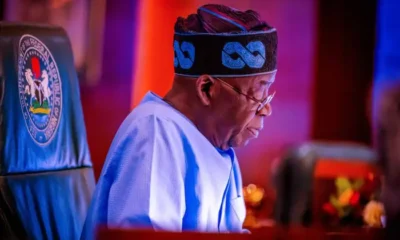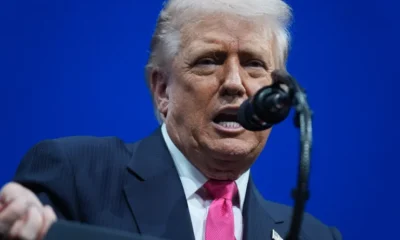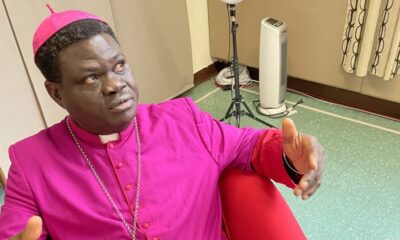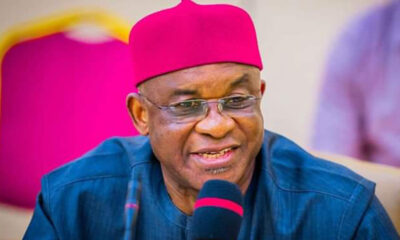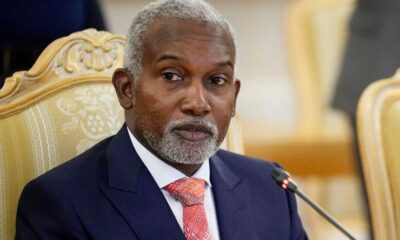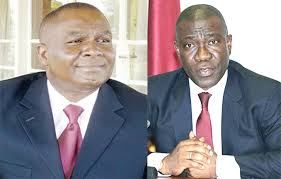Breaking News
Soludo Knocks Trump Over Military Threat, Says Nigeria’s Crisis Not Religious
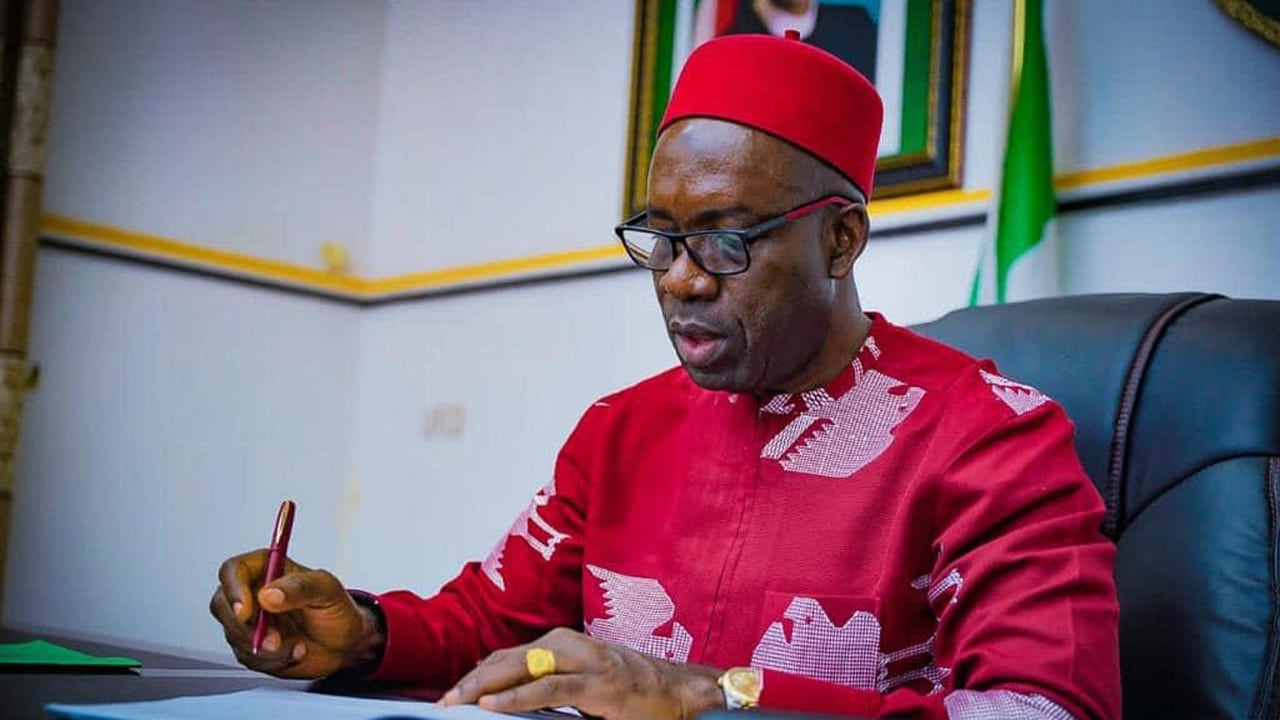
Governor Chukwuma Soludo of Anambra State has faulted former United States President Donald Trump’s threat of military intervention in Nigeria over claims of a “Christian genocide,” insisting that the nation’s security challenges are not religious in nature.
Speaking during a media chat on Sunday, Soludo said Trump’s remarks misrepresented the realities on the ground, stressing that the issues in Nigeria go beyond religion and require deeper understanding.
“The security challenges in Nigeria go beyond a conflict between Muslims and Christians,” Soludo stated.
“Trump’s threat of military intervention to ‘protect Christians in Nigeria’ distorts the actual issues on the ground.”
The governor called for the Federal Government to engage in substantive dialogue and accurate representation of facts in responding to the controversy.
He noted that if Nigeria ever needed help, it should be sought through proper diplomatic and security channels, not through foreign threats or unilateral action.
“If Nigeria were to seek foreign assistance, it should be through formal requests for military support, technology, or equipment, not through external threats,” Soludo said.
He firmly rejected the idea of an invasion, likening Trump’s suggestion to a hypothetical scenario where African countries might threaten to invade the United States over racial violence.
“I am not quite sure if you have policemen killing some blacks. I remember the #BlackLivesMatter protest, and somebody would say maybe Africa should go and invade America because blacks are being killed? I’m not quite sure,” he remarked.
Soludo emphasised that national dialogue remains the most effective path toward resolving Nigeria’s security crisis. He urged all stakeholders to focus on internal solutions and responsible communication that promotes unity and understanding.
“I think there is a need for deeper conversation,” he said. “It must end in conversation, and I am sure the government of Nigeria will respond very robustly. Nigeria is such a big country, and the government is doing a whole lot to safeguard it.”
While acknowledging that the United States has the right to express its views on global affairs, Soludo maintained that any foreign response must respect Nigeria’s sovereignty and align with international law.
“As a country, America has its own rights to have its own views about what is going on elsewhere,” he said. “But when it comes to what it does, I am sure it must also act within the realm of international law.”
Trump, in a post on his Truth Social platform on Saturday, had threatened to carry out military action in Nigeria to counter alleged anti-Christian killings.
The former U.S. president also announced that Nigeria would be added to the Department of State’s list of Countries of Particular Concern for supposed religious persecution.
In his post, Trump claimed that he had directed the “recently renamed Department of War” to “prepare for possible action” and warned that if attacks occur, they would be “fast, vicious, and sweet.”
“We may very well go into that now disgraced country, ‘guns-a-blazing,’ to completely wipe out the Islamic terrorists who are committing these horrible atrocities,” Trump wrote, without specifying the alleged perpetrators.
He also threatened to cut off U.S. assistance to Nigeria if the government “continues to allow the killing of Christians.”
Trump’s statements have drawn widespread backlash from Nigerian leaders and civil society groups, who described them as reckless, insensitive, and uninformed.
Governor Soludo joins other public figures, including Shehu Sani and Governor Ademola Adeleke, in condemning the remarks as a dangerous misrepresentation of Nigeria’s internal challenges.
Summary
Governor Soludo’s response underscores the growing consensus among Nigerian leaders that the country’s security problems cannot be defined along religious lines.
He insists that Nigeria’s sovereignty must be respected and that constructive dialogue, not threats of invasion, offers the only path toward lasting peace and international understanding.

